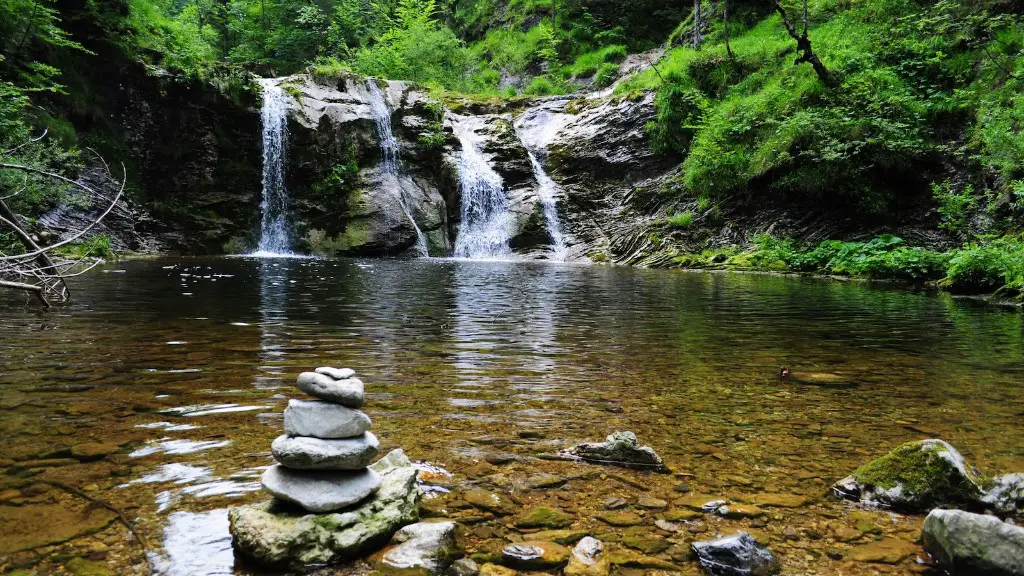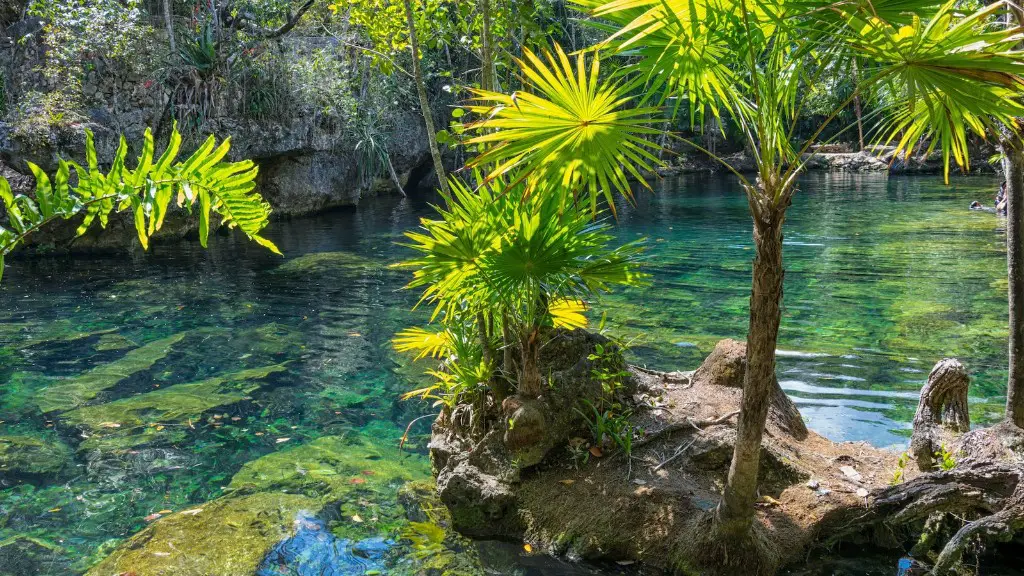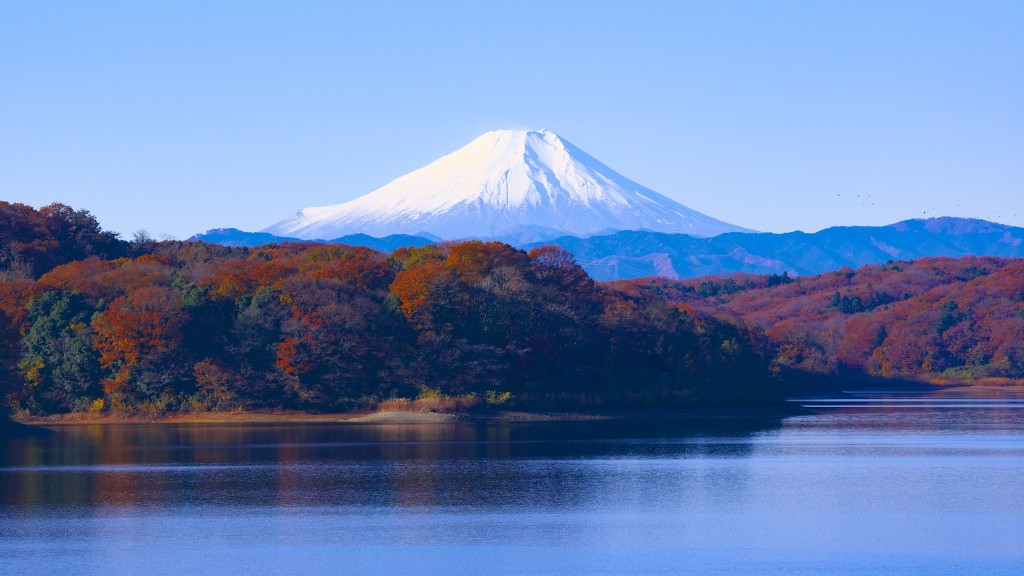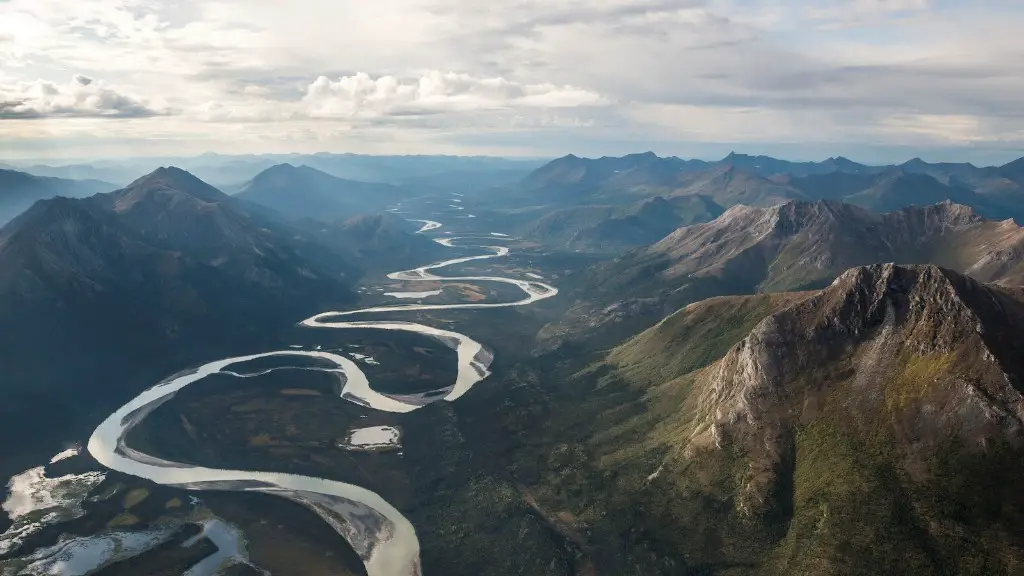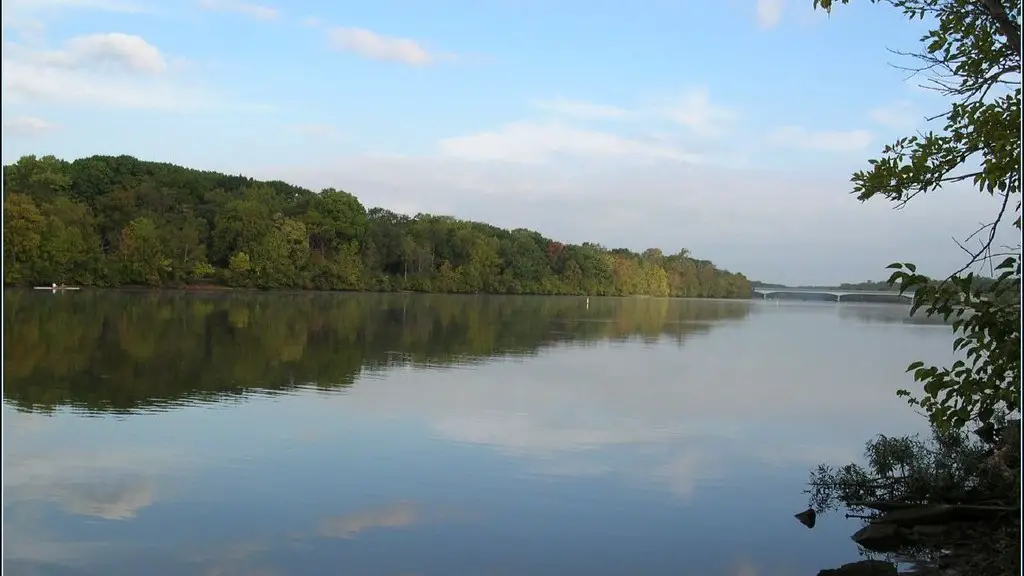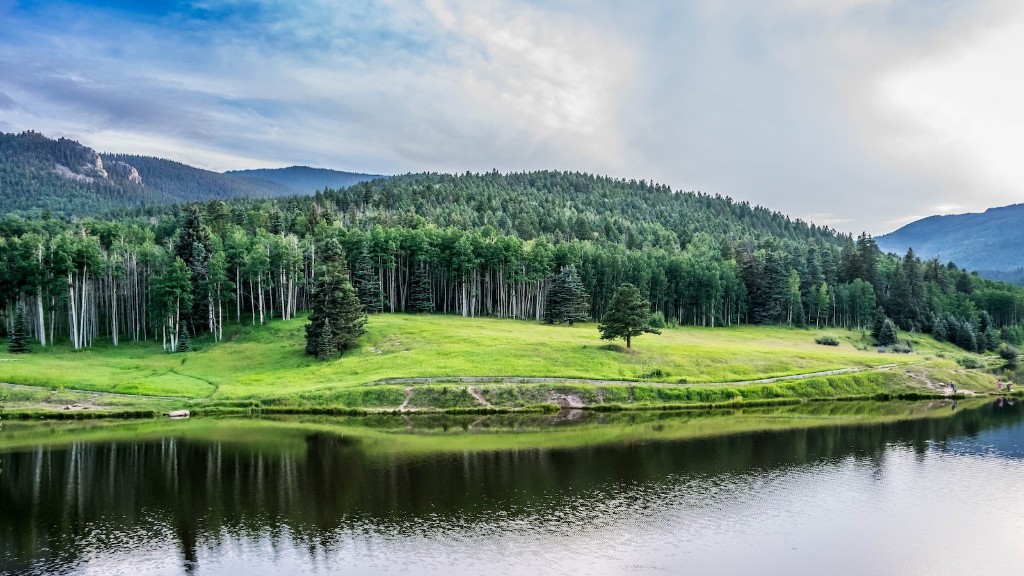The Mississippi River is one of the world’s most important waterways. It stretches from Minnesota in the northern United States to the Gulf of Mexico in the south. It has been used for centuries for transportation, industry, and recreational activities. It has also had a profound impact on where people live.
Historically, the development of settlements along the Mississippi River was driven primarily by a combination of geographical and economic factors. For example, the fertility of the soil and the presence of natural resources like timber and coal made land near the river especially attractive to settlers. Additionally, the relatively shallow depth of the river made navigation and the transportation of goods easier.
Today, the presence of human settlements along the Mississippi is still largely determined by the same factors. Along its banks, one can find numerous cities and towns of varying sizes, each of which is connected by the river’s transportation network. On the river itself, there are a variety of working vessels, from towboats to commercial fishing boats to pleasure craft.
The Mississippi is also an important source of jobs and economic activity in the region. Thousands of people work in industries related to shipping, fishing, and other activities on the river. In addition, many of the cities and towns along the river rely on tourism and recreation, taking advantage of the river’s natural beauty and popularity.
The influence of the Mississippi River on the settlement of people is clear. However, its impact is not limited to the immediate areas near its banks. The river supports people, cities, and states far away from its shores as well. The waterway is part of an extensive transportation network, which allows goods to move between distant ports and inland markets. Additionally, its presence has encouraged the development of industries and encouraged commerce between regions.
Although the Mississippi is a major asset to its communities, it is also a potential source of danger. Its unpredictable behavior can result in flooding, which can damage property and endanger lives. Additionally, polluting the river can have serious consequences for the health and wellbeing of nearby communities. For all of these reasons, it is essential that people living in and near the Mississippi take steps to protect the environment, not only for their own sake, but for the sake of generations to come.
Environmental Impact of the River
The environmental impact of the Mississippi River is significant. The river powers a system of tributaries, wetlands and aquifers that form habitats for a variety of species, including fish, birds and other wildlife. In addition to providing a home for these creatures, the river also helps buffer local areas from flooding, reduces nutrient runoff from nearby agricultural operations and supplies fresh, clean water to communities in the region.
Unfortunately, human activities can have a negative impact on the river. Over-harvesting of fish and other wildlife, pollution from industrial sites, and nutrient runoff from agricultural lands can all degrade the river and its ecosystems. In addition, climate change is having a dramatic affect on the river, with some areas experiencing higher levels of water, more frequent flooding and more intense drought.
Fortunately, there are steps that people living near the Mississippi can take to protect the river and its environment. For example, they can urge their local and state governments to pass laws to protect the river and its ecosystems. They can also encourage businesses and industries in the area to reduce their environmental impacts, or look into alternative energy sources. Finally, people living in the region should be aware of their own impact on the environment, and take steps to reduce what they can control, such as water usage and waste generation.
Impact on Native Plant and Animal Populations
The Mississippi River is home to a number of native plant and animal populations. The river provides a habitat for a variety of species, from small insects and worms to larger mammals like beavers. It is also a source of food for animals, and importantly, serves as a source of drinking water for various species. Consequently, the health of the river is directly linked to the area’s native wildlife.
Unfortunately, various human activities can adversely affect the plant and animal species living in and around the Mississippi River. One example is the breakneck pace of development in some areas. In addition to the physical destruction of wildlife habitats, the increased runoff from roads, parking lots and buildings can have an impact on the river’s overall health. Other human activities, such as oil and gas drilling, can change the chemical makeup of the river and make it less habitable for some species.
Fortunately, there are steps that people living near the Mississippi can take to protect its native plant and animal populations. For instance, they can advocate for more environmentally friendly development in their local communities. They can also support conservation efforts, such as planting trees and creating habitat corridors. Additionally, they can use their voice to urge their local and state governments to pass regulations or laws protecting the Mississippi’s wildlife.
Economic Impact of the River
The economic impact of the Mississippi River is immense. It is estimated that the river is responsible for millions of jobs and billions of dollars in economic activity. The river serves as an important transportation network, bringing goods from one region to another. Additionally, the river supports various industries, from shipping and manufacturing to recreation and tourism. Finally, the Mississippi provides valuable energy resources, including hydroelectric power and natural gas.
The economic benefits of the river are not limited to the immediate area. The waterway supports industries, cities and states far away from its shores. For instance, some of the products shipped or manufactured on the river – such as grain, oil and coal – are used in inland areas far from the river. Additionally, the presence of the river has attracted businesses and industries to the region, which helps create jobs and attract investment.
Unfortunately, the Mississippi River is not immune to the effects of climate change. As temperatures rise, the river can become too warm to support certain fish species. Additionally, extreme weather events, such as flooding, can have a serious impact on the river’s industries, particularly those focused on recreation and tourism. Fortunately, there are steps that people living near the Mississippi can take to protect their local economy. For instance, they can lobby their local and state governments to invest in flood mitigation measures, or to invest in renewable energy sources.
Influence in Art, Culture and Society
The Mississippi River has had a profound influence on the art, culture and society of the area. The river’s landscape has been captured in many forms, from literature to painting. Additionally, the river has had an impact on the region’s music, food and language. For example, a number of musical genres, including the blues and jazz, originated along the river’s banks.
The river has also played a role in the region’s history. It provided transportation, communication and other essential services to settlers and traders alike. Additionally, the river’s presence helped to shape the economic, social and political structure of the area.
Finally, the river has had an influence on the region’s culture today. People living in and near the Mississippi take pride in the river and its history, and many look to the river to define and shape their identity. Numerous festivals and activities, such as Mardi Gras, honor and celebrate the river’s importance to the region.
Fortunately, there are steps that people living near the Mississippi can take to protect and promote its cultural heritage. They can advocate for the preservation and celebration of the region’s art, music and literature. They can also take steps to protect the river, since its health is closely tied to the region’s culture and history.
Religion and Superstition around the River
Religions, superstitions and folklore involving the Mississippi River have been part of the region for centuries. Native American tribes, for example, have long worshipped the river and considered it sacred. Other cultures and belief systems, such as voodoo and the occult, have had a significant influence on the area.
The various spiritual beliefs around the Mississippi River have also given rise to superstitions, such as the idea that the river can bring good luck or bad luck. People have told stories about the river for generations, and these stories have both frightened and entertained people. For example, some of the most popular superstitions involve eerie objects or creatures said to inhabit the river or its banks.
Although some may dismiss these superstitions as ridiculous or outdated, they are still part of the region’s culture and identity. Understanding and celebrating these stories and beliefs can help bring people together and promote a sense of community. Additionally, they can help us to remember and appreciate the power of the Mississippi River and its importance to the region.
Conclusion
The Mississippi River is one of the most important waterways in the world. It has had a profound influence on the people and environment of the region for centuries. It provides a habitat for native plant and animal species, serves as an important economic asset, and has played a role in shaping the art, culture and society of the area. In addition, it has inspired various religions, superstitions and folklore. Finally, it is essential that people living in and near the Mississippi take steps to protect and preserve the river not only for their own sake, but for the sake of generations to come.
